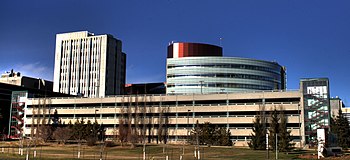When the Liberals came into power last year, and John McCallum was named the minister of immigration, he said he would take some time to assess the recently adopted Express Entry system of immigration before making any changes. Now, after a year of focusing on first, the arrival of Syrian refugees and a summer of consultations on the immigration system, Immigration, Refugees and Citizenship Canada (IRCC) has announced some changes to Express Entry.
The changes to Express Entry, which will take effect on Nov. 19, aim to create a more fair and responsive immigration system that will address emerging needs and ensure long-term economic growth for the middle class.
Changes include awarding points for job offers to eligible candidates already in Canada on Labour Market Impact Assessment (LMIA) exempt work permits, and to international students who completed their studies in Canada.
Also, more time will be allocated to candidates to submit an application for permanent residence once an invitation to apply is received.
“We have committed to doing more to attract highly skilled immigrants to come to Canada and become permanent residents because this is important to build our economy and strengthen our society,” says Minister of Immigration, Refugees and Citizenship McCallum. “I am confident that the changes to Express Entry will be one of the many positive outcomes of the changes we will be bringing to our immigration system.”
THE DETAILS
BEFORE NOV. 19, 2016
Job offers
The Express Entry Comprehensive Ranking System (CRS) awards 600 points for a job that is permanent and is supported by a Labour Market Impact Assessment (LMIA).
Education
The Express Entry system only awards points for education overall as long as it has been assessed as equivalent to a Canadian standard. No additional benefit is awarded specifically to former international students who have received an education in Canada.
Applications
After receiving an invitation to apply, candidates have 60 days to submit a complete application for permanent residence. This includes all documentation such as police certificates and medical exams.
AFTER NOV. 19, 2016
Job offers
On Nov. 19, 2016, the points awarded by the CRS for a job offer will change in three ways:
Points will be awarded for job offers of eligible candidates here on LMIA exempt work permits.
Many people in Canada temporarily on an employer specific LMIA-exempt work permit, but who want to stay in Canada permanently, will no longer need to get an LMIA to be awarded job offer points by the CRS. This includes candidates who are here under the North America Free Trade Agreement, a federal-provincial agreement, Mobilité Francophone, or who are intra-company transferees. The candidates must meet certain criteria, such as at least one year of work experience from the same employer who is providing their job offer.
Job offers will only need to be a minimum of one year in duration once they receive permanent residence.
By changing the job offer requirement from permanent to one year means that more highly skilled candidates working in contract-based industries will have a higher likelihood of receiving an invitation to apply for permanent residence.
Points awarded for job offers will be reduced.
A total of 50 points will be awarded to candidates with a valid job offer in a National Occupational Classification (NOC) 0, A or B occupation, while a total of 200 points will be awarded to candidates with a valid job offer in a NOC 00 occupation.
The number of points awarded for a job offer, often made it hard for highly skilled candidates without job offers to get an invitation to apply. This change means Canada will now welcome more highly skilled candidates whose skills and experience will help support and grow our economy.
The change in points for job offers will now also better recognize the skills and experience required for the job, together with the value that it brings to the economy.
Education
On Nov. 19, 2016, points will be awarded by the CRS for education obtained in Canada in the following way:
Points will be awarded for study in Canada above high school.
The CRS will award 15 points for a one- or two-year diploma or certificate and 30 points for a degree, diploma or certificate of three years or longer including a master’s, professional or doctoral degree.
With these changes, more former international students will be able to transition to the permanent residence using the Express Entry system. Former international students are a key source of candidates in Express Entry because of their age, education, skills, and experience. In addition to the time already spent in Canada, integrating into Canadian society permanently will be easier because they will have established social networks and familiarized themselves with life in Canada.
Applications
On Nov. 19, 2016, applications will be treated in the following way:
Candidates will have 90 days to complete an application for permanent residence if they get an invitation to apply. This will give candidates more time to gather all the required documentation and submit a complete application.
Source: http://canadianimmigrant.ca/immigrate/immigration-law/changes-to-express-entry-will-benefit-applicants-including-international-students





